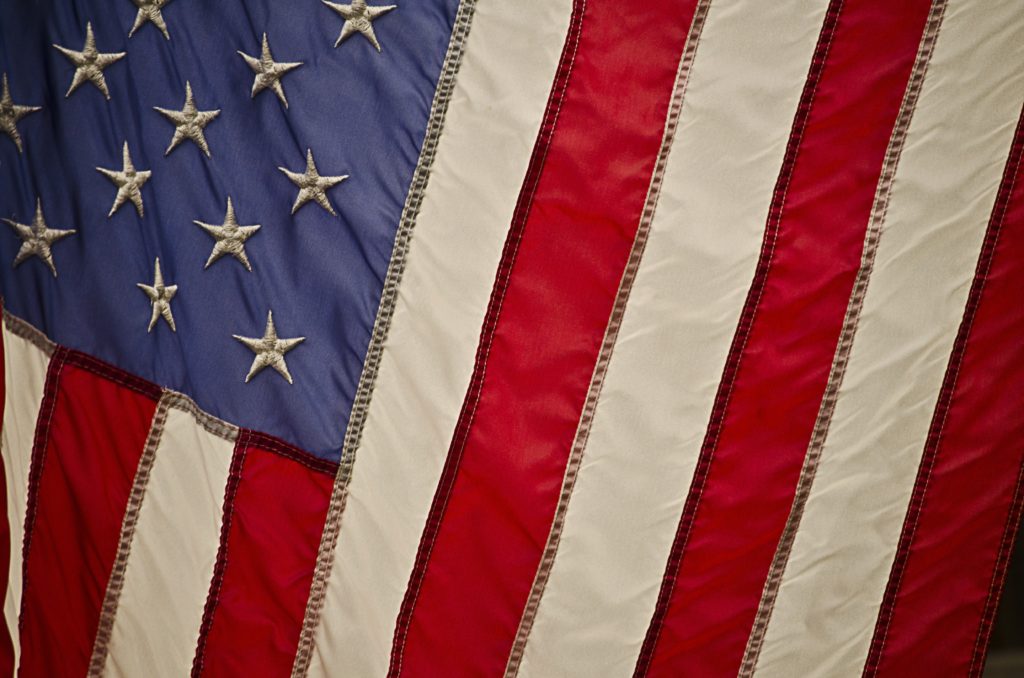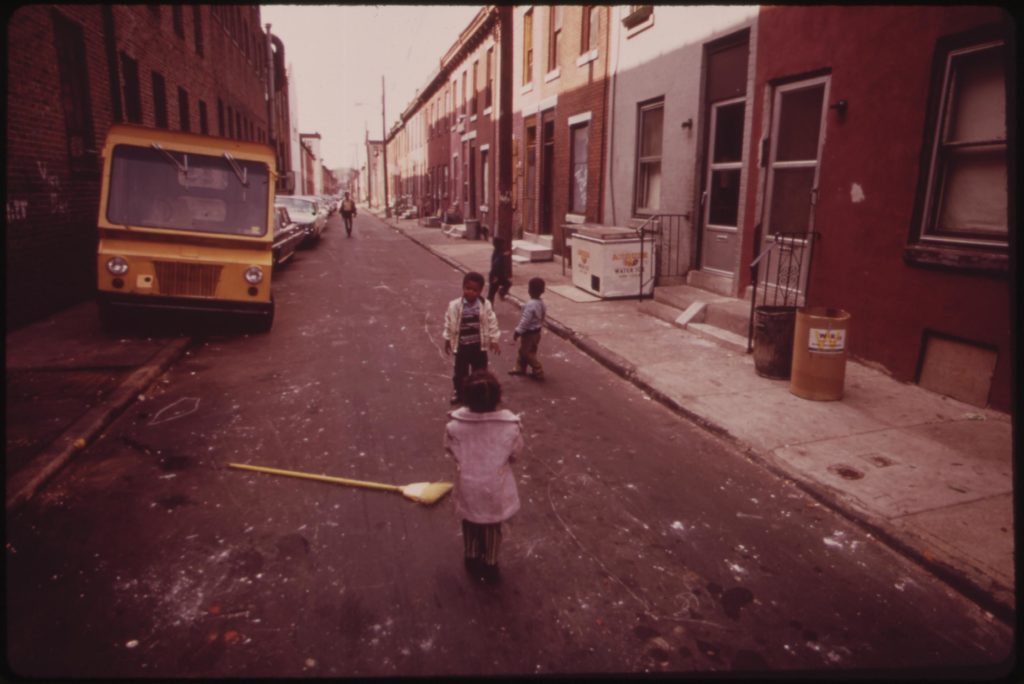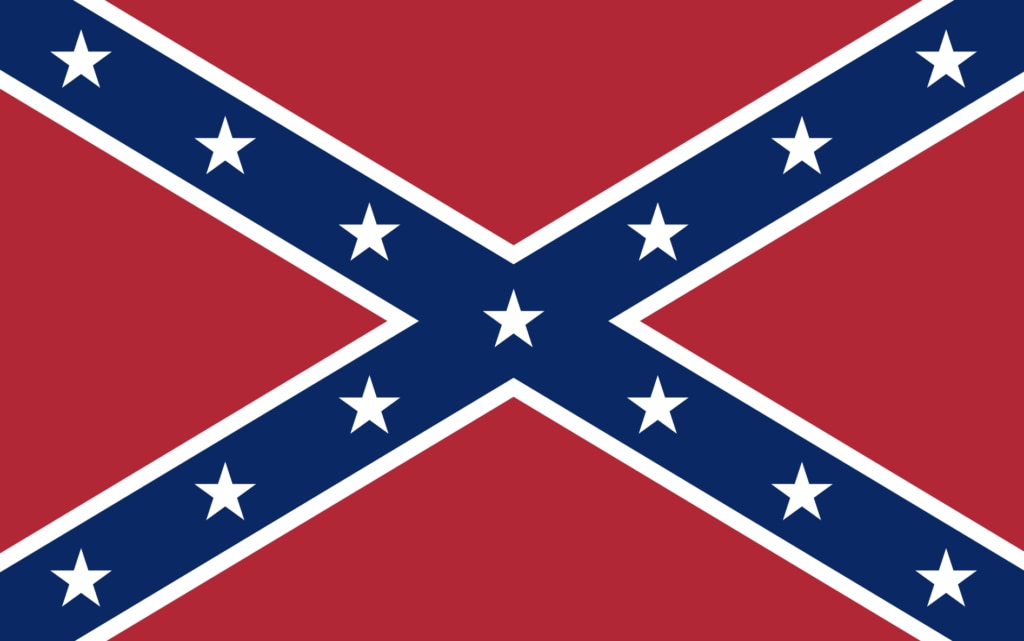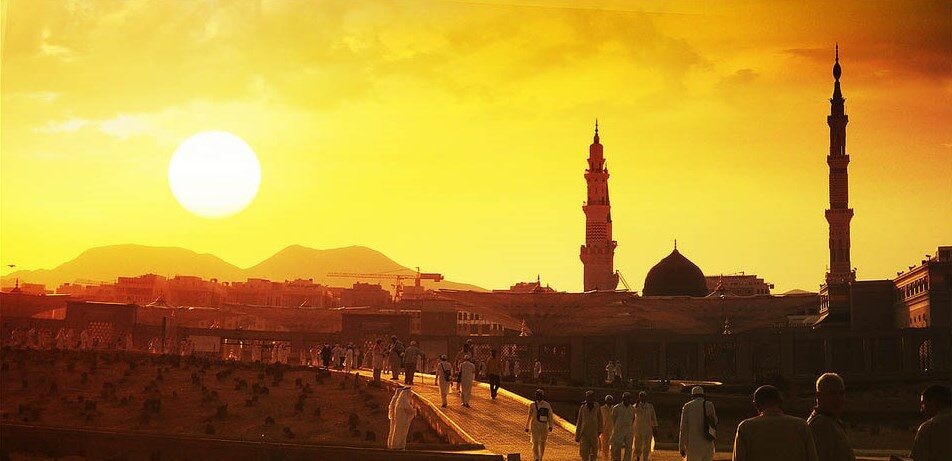Abdullah Dibba, Missionary, USA
Many people will tell you that in order for black people to bring about a change in their conditions of living, they need to prioritise marriage and education and live in stable households – so that their daughters do not get pregnant in their teens and their sons do not go to jail due to drug trafficking and violence. Some will even present arguments, proving through data, that black people are killed at the hands of fellow black people more than any other race or group in America.

The black experience in the USA is a complicated one. It is almost like original sin in the teachings of Christianity. Being born black means you inherit all the challenges you will live with for the rest of your life.
White supremacy led to free men being transported from Africa as slaves. A simple declaration was made to emancipate slavery, but other cunning plans were laid down to ensure that black people never found a place in society.
With no social status, no family set-up or self-confidence, they would have no other choice but to go right back into the plantations, “willingly”. They had no skills because all they knew was farming. Yet they could not farm after being freed because they were not entitled to any lands.
The system then saw black people moved to concentrated areas in the era of segregation between the races. Their neighborhoods became infested with drugs, with barely any access to education or other resources to take care of themselves and their families. Drug abuse was criminalised in the era of “war on drugs”.

Drug abusers would be described as monsters and wild beasts that needed to be tamed for the safety of society. Politicians, big corporations, the government and powerful people all joined this campaign.
In their neighborhoods, black people were not left to live freely. They were policed, closely monitored and every action was scrutinised. A young black man could have the most incredible talent, but with no opportunities to explore their choices, they would automatically enter the drug game in order to survive.
Up to this day, coming out of jail means less or no job opportunities due to being an ex-convict, so this vicious cycle goes on and on. This was breeding the idea of mass incarceration. They could not just migrate or move to safer areas because those were exclusively for white people.
I moved to the United States of America in February 2017 to serve as a missionary. Originally from The Gambia, West Africa, I completed Jamia in the UK, where I spent eight consecutive years during my studies and training. My first destination in the US was Baltimore, which has a 63% black population. I then moved to Philadelphia where I am currently serving, with a 42% black population.
The problem, as I grew to understand through my three years of studying this issue, is not that black people are lazy and do not want something better for themselves. They have been controlled by a very thoughtful system, which continues to ensure that their options are very limited.
Every step of the way, black people have not sat back and done nothing about their plight. Albeit debatable whether appropriate or proportionate, the protests and violence we see today are one of the many steps taken to fight this fight. Many movements and influential black leaders have come and gone, investing their blood, sweat and tears in freedom fighting, taking diplomatic steps, patriotism, academic work, peaceful marches and sheer force.
Only two days after George Floyd was unjustly murdered by police officers in Minnesota on 25 May 2020, over 200 cities across the United States reacted to the videos that emerged. This gradually became a global outcry for justice. It caused anger and outrage. People felt that they had had enough of the deliberate and targeted killings of innocent black people by officers who swore to protect every citizen.

The peaceful protests didn’t seem to bear any fruit so they deemed it fit – wrongly – to take to the streets to loot, break and burn for the message to somehow resonate. They now want to be heard and seen because they have been ignored for far too long.
“Why do we look so different in the first place?”, a curious mind may ask. “We could have all looked the same and there would be no racism or bigotry.” “We would have all been citizens of the world with no questions asked.” The answer given by Islam is precise, yet very profound.
وَ جَعَلۡنٰکُمۡ شُعُوۡبًا وَّ قَبَآئِلَ لِتَعَارَفُوۡا
“… and we have made you tribes and sub-tribes that you may know one another.” (Surah al-Hujurat, Ch.49: V.14)
The Holy Prophet, peace and blessings of Allah be upon him, said in his farewell sermon:
“An Arab has no superiority over a non-Arab, nor does a non-Arab have any superiority over an Arab; A white person has no superiority over black person, nor does a black have any superiority over white, except by piety and good actions.”

Based on this fundamental teaching, Islam approaches this problem and nips it in the bud. Deeply thoughtful and wise steps were taken almost 1,500 years ago when slavery was not only accepted but was glorified and lauded. Slavery was deeply engrained into Arabian society and casually accepted, not as a vice, but a badge of honour, pride and status.
Within 23 years of his prophethood, Prophet Muhammadsa personally turned the tide of this heinous crime against humanity and ended slavery in the most effective manner. He began calling a black freed slave “master” and married the divorced wife of his freed slave. Any slave that came into his possession, he freed immediately while upholding their rights. He urged all Muslims to do the same. It is severe intellectual dishonesty to say Prophet Muhammadsa traded or promoted slavery – he was the one man who effectively abolished slavery.
Effective steps were taken towards existing slaves to ensure that they were as respected in society as any free men. In order to abolish slavery, Muslims married slaves, who otherwise would be left on their own without support systems. Again, understanding the culture and dynamics of society at that time is crucial to comprehend how great a teaching this was. These freed slaves were blessed with a household and marital rights; their inferiority was practically put to an end through their new freedom.
Then, women had been instructed not to wear the veil in the presence of their existing slaves so that they may not feel like strangers in the household (Surah Al-Nur, Ch.24: V.32).
The freeing of slaves was regarded as the high-mountain road that led to heights of divine nearness (Surah Al-Balad, Ch.90: V.13-14).
Islam also ensured that even after the emancipation of slaves, they were not left without support and helpers. The Holy Prophetsa established a bond of brotherhood between the freed slaves and their former masters. They were to be called each other’s maula – helper or friend. This was to ensure that they would stand by each other in times of need. They were given the right to inherit from each other if one was to die and not leave an heir behind. (Sahih al-Bukhari, Kitab-ul-Itq) (Jami‘ al-Tirmidhi, Abwab-ul-Faraiz)
The Companionsra adopted these teachings with so much pride that not only did they free their own slaves but also purchased slaves with non-Muslim masters, only to free them out of goodwill.
These freed slaves were not just left to struggle to find their place in society. We learn about Hazrat Zaidra, a freed slave of the Prophetsa and his son, Hazrat Usamara. The Holy Prophetsa appointed them duties overseeing very important military expeditions, while many of his most eminent and high-placed Companionsra served under them. Those who had issues with this were admonished by the prophet thus:
“By God, just as Zaid was fit for leadership and was one of those whom I most loved and trusted, similarly, his son Usama is fit for leadership and is one of the most beloved and trusted men to me.” (Sahih al-Bukhari, Kitab-ul-Fazail)
What we see in the beautiful teachings of Islam as practised by the Holy Prophetsa was that the problem was identified and acknowledged first. Those involved in the act of discrimination and slavery were made to understand that they had no rights whatsoever over the lives of other people. Both the oppressors and oppressed were given practical steps on how to get rid of this cancerous act, without any party feeling that they were being treated unfairly. The balance in the approach given by Islam is what lacked in the approach of Abraham Lincoln in his abolition of slavery.
Islam, in its early days, was a family in which both the noble and slaves faced persecution. As the Holy Prophetsa himself went through persecution along with his Companionsra and all Muslims for 13 years in Mecca, he taught those slaves that help only comes to those who are steadfast and prayerful to the only One True God. They felt no need to revolt because their voices were being heard by the Almighty and He came to their rescue in the most unprecedented ways.
As Islam acknowledged the problems and presented solutions, it also taught all Muslims, including the slaves, not to riot against the authorities and cause damage to society. The Holy Prophetsa taught:
“O ye who believe! Obey Allah and His Messenger and those in authority among you. And if you defer in anything among yourselves, refer it to Allah and His Messenger if you are believers in Allah and the Last Day.” (Surah al-Nisa, Ch.4: V.60)
In fact, the Holy Prophetsa went on to say:
“Whoever disapproves of an unjust measure taken by his ruler should be patient, for whoever disobeyed the ruler even a little will die as those who died in the pre-Islamic period of ignorance [i.e. as rebellious sinners].” (Sahih al-Bukhari, Book of Afflictions, Hadith 7053)
“You will see injustice, you will witness your rights suppressed and see others given preference over you.” When his followers were asked how they should respond to such injustice, the Prophetsa replied, “Give your leaders their rights, and then ask God for yours.” (Sahih al-Bukhari, Book of Afflictions, Hadith 7052)
Discussing protests and demonstrations can be very sensitive. During the civil rights movement days, protests were not seen as the solution to the problems being faced. They were a way of gathering and unifying the people and bringing attention to the issue. They sought for justice in the short term and demanded reform in the long term and strategies were put in place to implement the plans.
The sad truth is that nowadays, it is extremely difficult to control the crowds in protests and people join in for creating mischief and disturbance rather than purely fighting for justice.
His Holiness, Hazrat Khalifatul Masih V, may Allah be his Helper, has, on numerous occasions, laid down guidelines to enlighten African Americans, as well as other communities facing injustices, to demand legislation, in patriotic ways that ensure equal treatment of black people and justice for all.

Huzooraa admonished leaders in his Friday Sermon of 5 June 2020 delivered at the Mubarak Mosque in Islamabad, Tilford, UK:
“The governments should come to realise that all this chaos will not be solved through force, nor is it the answer to all problems, rather the sustenance of a government is in its just dealing of all its citizens. Only then can law and order be established in the land. If the people become restless, then no government can stand against them.”
His Holinessaa also shared some words of wisdom and caution to the victims :
“If, however, African Americans burn down their own houses, they will only be harming themselves and some African leaders have also urged them not to do so. They should, of course, try to obtain their rights, but in a lawful manner, not by burning down their own properties. Hence, those protesting should be mindful of this.”
In the end, His Holinessaa prayed that Allah may remove the disorder all around the world and that the governments may uphold the rights of their citizens and the people may obtain their rights through lawful measures. Amin.


Mashallah, a well written article, with some insight into how slavery/ racism is entrenched in the system in US. I think, the issue is more global than just in US. It applies to many other European imperialist nations who contributed to enslaving African people over the last few centuries. It unfortunately is also relevant to other parts of the world where economic slavery and socio-political slavery of certain communities is ongoing. Religion is a system where wisdom is sourced from beyond the limitations of human ability thus surpassing our shortcomings. Wisdom of religious teaching is sourced from the Creator. Islam offers the only unadulterated scripture in the Holy Quran, hence the only real solution to dire human plights like slavery.
Excellent and informative how Islam was the religion which started the first human rights charter
Very well written article, I really appreciate it. I am going to take the opportunity to tweet this article Insh’Allah.